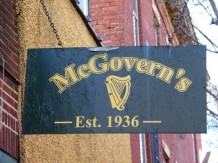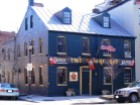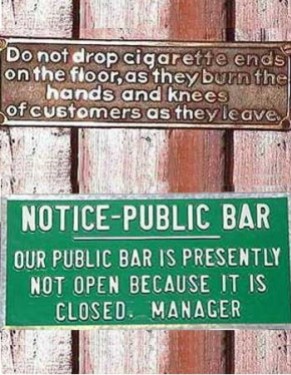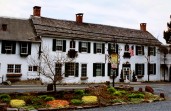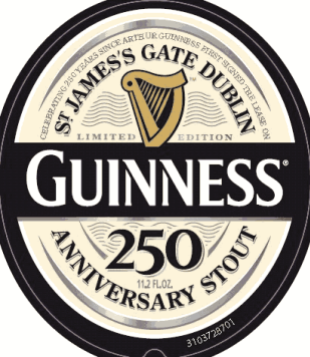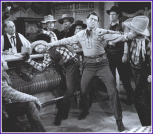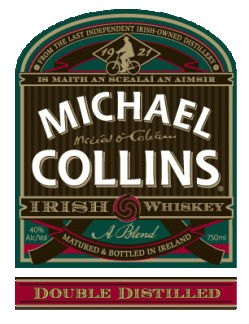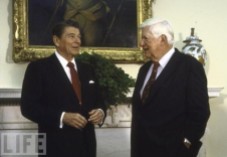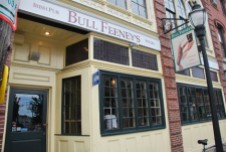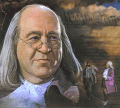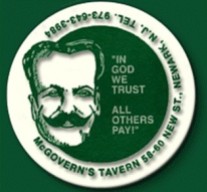
“We are not here to curse the darkness, but to light the candle that can guide us thru that darkness to a safe and sane future.” – John F. Kennedy
Even while our citizens endured the partial shutdown of government and the near total shutdown of governance, that lead photon on that first ray of sunlight coming over the horizon each morning still managed to awaken the continental United States by hitting its mark on the summit of Cadillac Mountain in Maine’s Acadia National Park. And while the roads of this nation’s first national park east of the Mississippi remained unplowed, the garbage uncollected, and the visitor’s center unmanned, the sun still continued to shine. It seems the natural order of the universe and nature function quite well without government–the human species not so much!
In the course of my own travels, I have found there is a bit of magic in that light that caresses the coast of Maine. For me personally, it has been a source of comfort, clarity, and inspiration. Not that I’m questioning the effectiveness of sunshine south of the Piscataqua, but that mix of both man-made and metaphorical pollution seems to have somewhat diminished the curative effects–especially along that storied stretch of the Potomac in Washington.
Approximately 116 nautical miles south of Acadia lies one family’s fortress that has weathered many Atlantic gales and has witnessed many a sunrise since the turn of the last century. And for most of my time, while trying to unsuccessfully coax the ocean’s bounty onto the end of my fishing rod in the waters off Kennebunkport, I was pretty much unaware of the potential political dynasty that was mixing vodka martinis on the lawn and playing tennis on the court at Walker’s Point. But during the summer of 1990, a few months before our armed incursion into Iraq, I became keenly aware that the price of oil was of far greater concern than the price of lobster. It was also during this period that I discovered that the 41st President of the United States enjoyed a good glass of beer as much as he enjoyed his martinis.

“We are a nation of communities… a brilliant diversity spread like stars, like a thousand points of light in a broad and peaceful sky.” – George H. W. Bush


The talk around town was that George H. W. Bush on occasion would be spotted hoisting a pint with locals and tourists alike. And by the end of his presidency, the opening of Federal Jack’s Brewpub in Kennebunkport would help to make his loss to William Jefferson Clinton in 1992 and subsequent retirement at Walker’s Point a bit more tolerable. And while there may have been a few dark clouds that obscured the late president’s so-called “1000 points of light”–he was a man who truly believed in the value of selfless public service to country and the possibility that we could actually become a kinder and gentler nation. Sadly, the flame of that fanciful notion seems to waning as of late.
“America is a shining city upon a hill whose beacon light guides freedom-loving people everywhere.” – Ronald Reagan
At the close of of last Tuesday’s State of the Union address, President Trump may have been attempting to evoke that Reaganesque view of our place in the world when he said, “We must always keep faith in America’s destiny — that one Nation, under God, must be the hope and the promise and the light and the glory among all the nations of the world!” Unfortunately, for many of those most in need of seeing America’s light–that light will be nothing more than a brief glimpse between the slats of some steel barrier on our southern border
“Truth will ultimately prevail where there is pains to bring it to light.” George Washington

During the stifling summer of 1787, our nation’s first president presided over the Constitutional Convention. Hot days and even hotter tempers fueled the often contentious proceedings at the Philadelphia Statehouse.
On September 17, 1787, nearly four months after the convention convened, even the most cantankerous of those among the delegates would choose consensus and compromise–and commit their signatures to the United States Constitution. With the grand bargain now in hand, Doctor Benjamin Franklin of the Pennsylvania delegation could forego politics in favor of his much preferred philosophical musings. With his gaze fixed upon the carving of the sun on the backrest of the chair that gave George Washington some measure of comfort during the trials of that long, difficult summer, Franklin said, “I have often looked at that picture behind the president without being able to tell whether it was a rising or setting sun. Now at length, I have the happiness to know that it is indeed a rising, not a setting sun.”

While I have normally shared Mr. Franklin’s optimism about America’s future wellbeing, as of late, a few vexing shadows of doubt have darkened my horizon. Certainly, many thousand points of light continue to illuminate American skies, but our elected guiding lights have spent too much of their time in retreat under their respective red and blue bushels. So from my perspective, I’m not sure whether I’m seeing the dawn’s early light, the twilight’s last gleaming, or just the flickering lights of last call.
Make mine a double–it’s an awfully long road home–and an even longer road to 2020!
Posted by: Chris Poh for American Public House Review

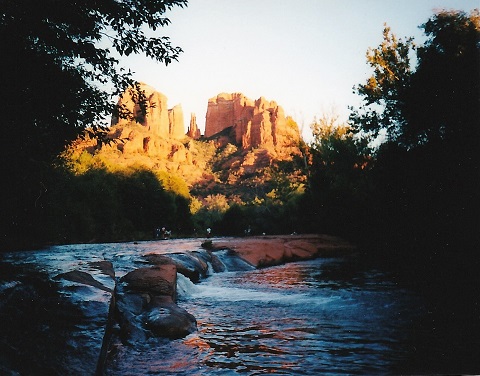
 While countless others have experienced the almost unimaginable physical and psychological pain endured by John McCain while held in captivity, few could forgive their captors–and even fewer would promote reconciliation and a working relationship with their former enemies. But this was a profound human being whose reach could always extend across the aisle, and when necessary for the sake and wellbeing of all–that reach would cross oceans. In triumph and in tragedy he always maintained his sense of purpose and his unique sense of humor. And he never wavered in his service to both country and humanity. I feel very blessed to have stood under some of those same western sunsets that the senator from Arizona so loved. And I am so very grateful to live in a nation that could give rise to the likes of a John Sydney McCain!
While countless others have experienced the almost unimaginable physical and psychological pain endured by John McCain while held in captivity, few could forgive their captors–and even fewer would promote reconciliation and a working relationship with their former enemies. But this was a profound human being whose reach could always extend across the aisle, and when necessary for the sake and wellbeing of all–that reach would cross oceans. In triumph and in tragedy he always maintained his sense of purpose and his unique sense of humor. And he never wavered in his service to both country and humanity. I feel very blessed to have stood under some of those same western sunsets that the senator from Arizona so loved. And I am so very grateful to live in a nation that could give rise to the likes of a John Sydney McCain!







 By the spring of 1787, less than four years after the signing of “The Treaty of Paris” which formally ended British hostilities in America, the new nation was already facing an internal crisis of such proportions that the demise of democracy in the New World seemed imminent. In response those that had crafted the Declaration of Independence and the Articles of Confederation agreed to hold a convention at the Philadelphia State House. Their goal was to strengthen the articles of governance so that the intense differences between the states might be resolved.
By the spring of 1787, less than four years after the signing of “The Treaty of Paris” which formally ended British hostilities in America, the new nation was already facing an internal crisis of such proportions that the demise of democracy in the New World seemed imminent. In response those that had crafted the Declaration of Independence and the Articles of Confederation agreed to hold a convention at the Philadelphia State House. Their goal was to strengthen the articles of governance so that the intense differences between the states might be resolved.





